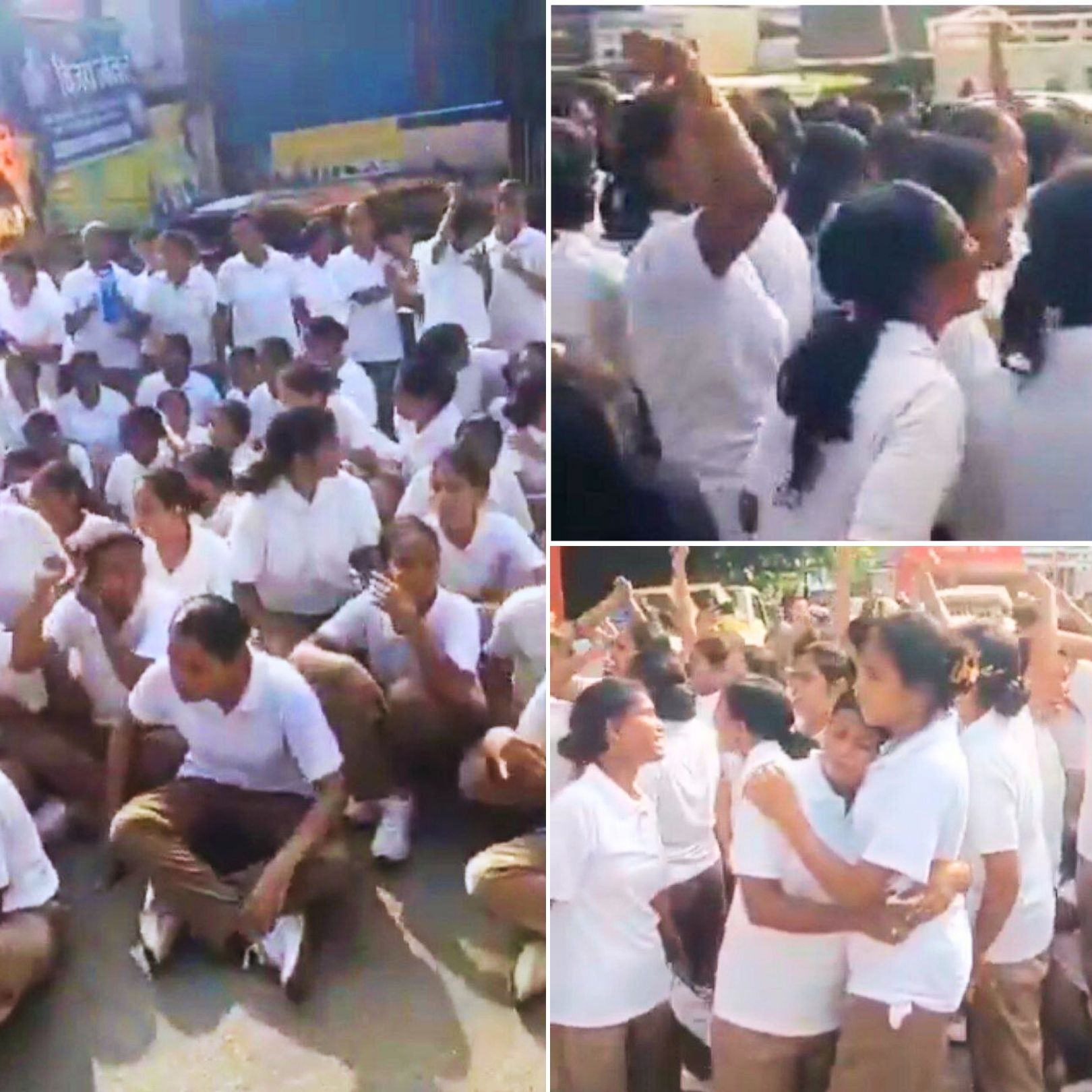On Wednesday, nearly 600 women constable trainees at the 26th Battalion Provincial Armed Constabulary (PAC) camp in Bichhiya, Gorakhpur, staged a protest over severe shortcomings in their living conditions just two days after the commencement of their training. The trainees claimed that the centre — designed to accommodate 360 trainees — was overcrowded with almost double the number, resulting in a lack of clean drinking water, electricity, adequate toilets, and privacy.
The trainees also alleged the shocking installation of CCTV cameras near the women’s toilet galleries, which they claimed violated their dignity and safety. Following the outcry, PAC Commandant Anand Kumar and Physical Training Inspector Sanjay Rai were suspended for negligence and inappropriate behaviour, while officials denied the camera allegations after inquiry and promised infrastructure improvements.
Protest Highlights Dire Overcrowding and Lack of Basic Amenities
The protest unfolded early Wednesday morning when around 600 women recruits vocally expressed their frustration by blocking the main gate and staging a dharna. Their grievances centred on overcrowded and unhygienic living quarters, which precipitated several health and safety concerns. “There’s no water, no electricity, no fans… and we have to bathe in the open,” shared one trainee with a sense of helplessness, emphasising the indignity they faced.
Many trainees questioned the rationale behind sending them to an overstretched facility, asking, “If there was no space in Bichhiya, then why call us here?” Their ordeal was compounded by allegations of mistreatment by some officers, including verbal abuse, and the installation of CCTV cameras in sensitive areas near the women’s toilets, escalating fears over privacy violations and harassment. The protesters demanded immediate action and respect for their basic rights.
Background and Official Response: Accountability and Reform
The 26th Battalion PAC training centre is currently hosting 598 women constable trainees from across Uttar Pradesh, enrolled in a rigorous nine-month training programme. Initially, trainee complaints were met with dismissal and stern reprimands from some supervisors, but the scale and vocal nature of the protest prompted intervention by senior police officials.
Inspector General of PAC, Preetinder Singh, stated that the probe into the CCTV camera allegations found no evidence supporting claims of surveillance infringing on privacy. He explained that a temporary power outage caused disruptions to water supply but that these had since been swiftly rectified. In response to the inquiry, two key officials — PAC Commandant Anand Kumar and Physical Training Inspector Sanjay Rai — were suspended on grounds of negligence and inappropriate conduct towards trainees.
The state government also recalled the Deputy Inspector General (DIG) of the Police Training School in Gorakhpur. Furthermore, the administration has committed to infrastructure upgrades, including adding toilets, restoring stable water and power supply, and installing privacy partitions in bathing areas to ensure a safer, more dignified training environment.
The Logical Indian’s Perspective
The Logical Indian commends the courage and resilience of the women constable trainees who raised their voices against systemic neglect, overcrowding, and violations of privacy and dignity. These public servants of tomorrow must be trained in environments that uphold respect, safety, and fairness — principles essential to fostering trust and efficacy in law enforcement.
This incident starkly highlights persistent gaps in institutional accountability and the urgent need for transparent, responsive governance that places human dignity at its forefront. Beyond remedial infrastructure changes, it is imperative to nurture a police culture rooted in empathy and equity, ensuring that women officers feel empowered and valued, not oppressed or unsafe.













